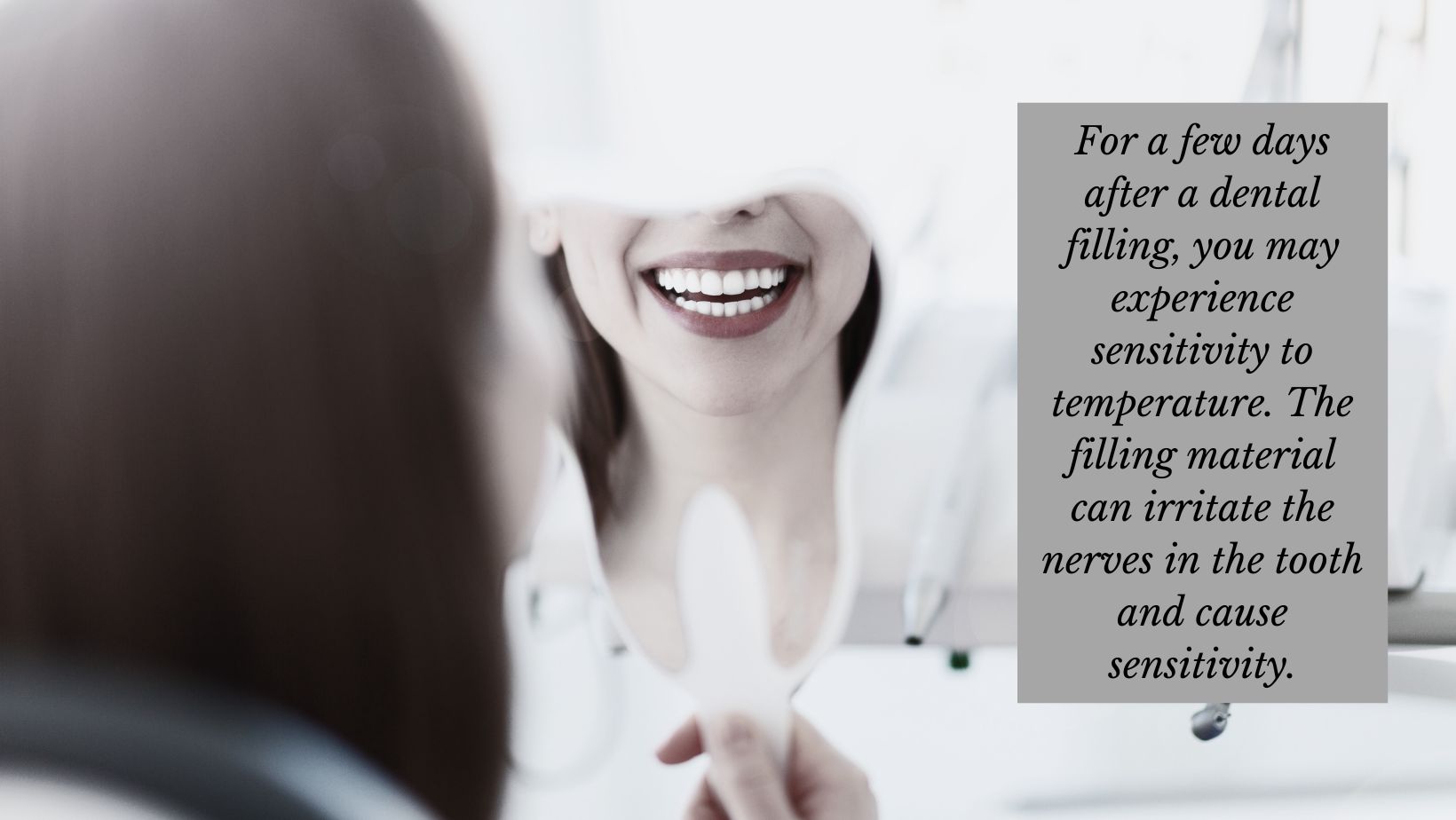If you have sensitive teeth, tell your dentist right away. Many people suffer from sensitive teeth and this can turn into a more serious issue. Here we list some signs to watch out for, like sensitivity to cold food. And, some things you can do to get your teeth feeling strong and healthy again.
Common Factors That Lead to Tooth Sensitivity
Sometimes tooth sensitivity is temporary. Other times it’s a warning sign that your sensitive teeth are turning into an even bigger problem, such as:
- Gum recession: When the gums pull away from the teeth, it can expose the tooth’s roots and dentin, making them more sensitive.
- Tooth decay: Cavities can cause the dentin to become exposed and lead to sensitivity.
- Grinding or clenching teeth: Habitual teeth grinding or clenching can wear down the enamel and expose the dentin.
- Enamel erosion: The enamel on our teeth protects the underlying dentin, but it can be worn away by acidic foods and drinks, tooth decay, or brushing too hard.
- Cracked or chipped teeth: When a tooth is cracked or chipped, it can expose the dentin and lead to sensitivity.
- Pulpitis: An infection of the pulp can be either reversible or irreversible. When the pulp is infected it may swell but the swelling has nowhere to go so this will cause pain in the mouth.
- Dental procedures: Some dental procedures, such as teeth whitening or fillings, can cause temporary sensitivity.
Tips on What to Do About Sensitive Teeth
Some symptoms can be taken care of at home. But, it’s advisable to see a dentist just in case.
- Use toothpaste for sensitive teeth: There are many toothpaste options specifically designed for people with sensitive teeth. These toothpastes contain ingredients like potassium nitrate or strontium chloride that help to desensitize the teeth and provide relief.
- Avoid acidic foods and drinks: Acidic foods and drinks can wear down the enamel on your teeth, making them more sensitive. Try to limit your intake of things like citrus fruits, carbonated drinks, and tomato-based sauces.
- Use a soft-bristled toothbrush: Brushing your teeth with bristles that are too hard can cause damage to your enamel and gums, leading to sensitivity. Opt for a soft-bristled toothbrush and be gentle when brushing.
- Practice good oral hygiene: Make sure you’re brushing your teeth twice a day and flossing daily to keep your teeth and gums healthy.
- Wear a nightguard: If you grind your teeth at night, this can cause issues. Talk to your dentist about getting a night guard to protect your teeth while you sleep.
- See your dentist: If your tooth sensitivity persists, it’s important to see your dentist. They will examine your teeth and determine the cause of your sensitivity. Your dentist may recommend a fluoride treatment, a dental filling, or another procedure to help alleviate your sensitivity.

What About Dental Sensitivity After a Procedure?
Yes, tooth sensitivity is a common side effect after many dental procedures. This is because dental procedures often involve some scraping, poking, and prodding of the teeth and gums, and that can cause temporary sensitivity.
In addition to the procedure itself, sometimes a patient’s mouth can be sensitive because of the numbing shot. Novocaine, the numbing solution, is administered through a needle and the shot can cause bruising even before the procedure begins.
Fortunately, in most cases, tooth sensitivity after a dental procedure is temporary. It will subside on its own within a few days. However, if your sensitivity persists or gets worse, contact your dentist. Your dentist can examine your teeth and determine if there’s an underlying issue that needs to be addressed.
Teeth Can Become Sensitive to Cold
The most common cause of teeth sensitivity to cold is the exposure of the tooth’s dentin. Dentin is the layer of tissue that contains tiny nerve endings. Exposure of the dentin can cause discomfort from cold or hot temperatures. Even brushing the teeth can cause pain.
For a few days after a dental filling, you may experience sensitivity to temperature. The filling material can irritate the nerves in the tooth and cause sensitivity.
Talk to a Dentist About Sensitive Teeth
When is the best time to tell your dentist about your sensitive teeth? It’s important to bring up the issue at your regular dental check-ups. Your dentist can monitor the sensitivity and provide you with the correct treatment if necessary. Additionally, if your sensitivity is severe or sudden, it’s important to make an appointment with your dentist right away to rule out any serious dental issues that may be developing.
If the sensitivity is interfering with your life, or if you think it might be a sign of a more serious problem make an appointment with The Dental Health Society today.


